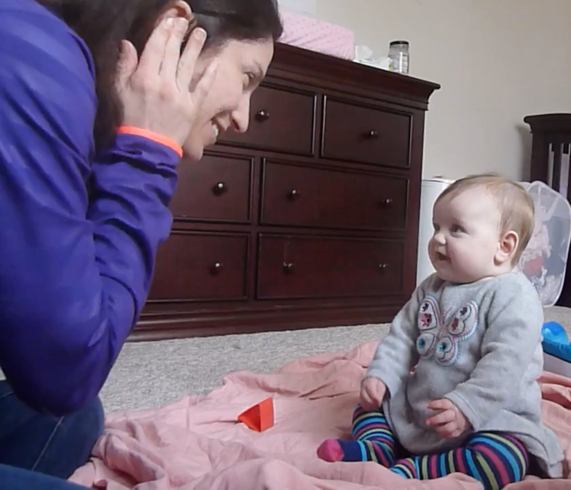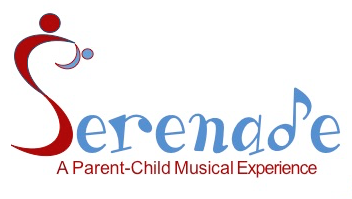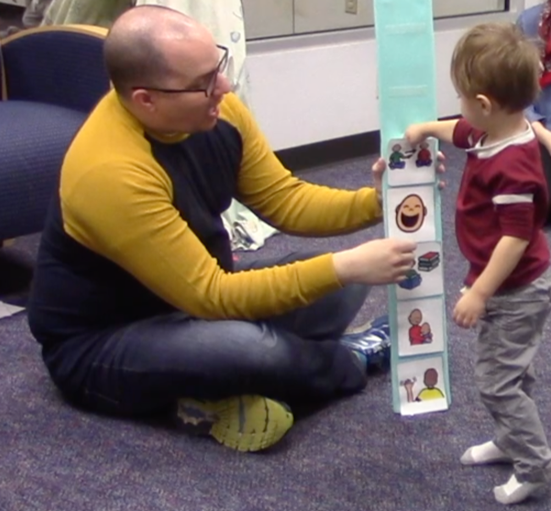Home » News » Music Cognition as a Window into Development
Music Cognition as a Window into Development
Posted by anderc8 on Monday, April 10, 2017 in News, TIPs 2015.

Miriam Lense, PhD, Research Instructor, Department of Otolaryngology
Written by Miriam Lense, PhD, Research Instructor, Department of Otolaryngology
Twin A wailed as the nurse administered the heel stick. His heart rate jumped up nearly 70 beats per minute and he tightly squeezed his eyes shut. Nine weeks premature, he endured painful heel sticks and neurologic examinations as part of his daily routine. He was certainly not desensitized to the poking and prodding. When the nurse was finished, I turned on the speaker, letting lullabies softly play into the isolette. His heart rate declined to baseline and the music soothed him to sleep.
Josh (name changed to protect privacy) is friendly and talkative. As a participant in our annual ACM Lifting Lives Williams Syndrome Music Camp, Josh exhibits the increased sociability, anxiety and attention difficulties that are often seen in people with Williams syndrome, a genetic, neurodevelopmental disorder. Although not a musician himself, Josh loves music, another common feature of Williams syndrome, and is often extremely emotionally affected by the music to which he is listening. “It’s like falling in love,” he tells me, “but instead of a girl, it’s music.”
The young girl’s mom tries to get her child’s attention by calling her name and waving to her, but the child does not respond. She remains focused on the metal spoon in front of her, repeatedly spinning it around and around. The little girl has autism spectrum disorder, a neurodevelopmental disorder characterized by impairments in social communication and engagement and repetitive behaviors. However, she loves when people sing, looking from face to face and smiling while her mother and friend begin singing her favorite nursery rhyme. When her mother pauses her singing, the little girl looks her in the eye to request that the song continues.
I have long been interested in child health and development. As a clinical scientist, my research focuses on individuals with or at-risk for developmental disorders including Williams syndrome, autism spectrum disorder and prematurity. In particular, my research uses music cognition to probe social, emotional and cognitive development in these conditions with the goal of designing evidence-based clinical applications involving music to promote health and wellness. I am extremely fortunate to be part of the vibrant Program for Music, Mind, and Society at Vanderbilt, working with researchers whose expertise and interests range from the genetics and neurobiology of musical skills to the impact of music on communities and society as a whole. Our team’s work on music and development cuts across these different themes, whether we are elucidating how the brain responds to music in people with Williams syndrome, describing profiles of musical skills or examining how individuals with disabilities learn new musical instruments or participate in community music experiences.

A baby watches as her mother sings to her.
A current theme of our work is the intersection of music and social engagement and communication. There is an inherent musicality to our social interactions and individuals are sensitive to this musicality from infancy. Indeed, the early interactions between an infant and caregiver are sometimes considered “proto-musical.” We are conducting research into the mechanisms by which these musical experiences that are a ubiquitous part of children’s interactions scaffold their development and promote meaningful social engagement. For example, in one line of work, we are examining infants’ attention and engagement when their parents sing to them. We find that infants’ attention and caregivers’ behavior is exquisitely timed to the rhythm of the singing interaction. In another line of work, we are examining relationships between the heightened sociability and sensitivity to musical emotions in Williams syndrome with the potential for harnessing music to address emotional and behavioral concerns while also providing insight into the development of musicality.
 With support from the Program for Music, Mind, and Society, we have also developed the Serenade (Social and Rhythmic Engagement in Autism Spectrum Disorder) Program. This program provides small group, parent-child inclusion music classes for children with and without autism. The classes blend parent training and behavior therapy strategies with joint active music making experiences. By participating in the classes, families build a toolkit of musical strategies for promoting meaningful social interactions and managing behavior. One participating family reported that musical activities now pervade their daily routines while another family remarked how “amazing it is to see the power of music each week in music class.” We are also pursuing several lines of research through this program, including the measurement of rhythm and interpersonal synchrony in social behavior, as well as the impact of class participation on attitudes toward parenting strategies and inclusion practices.
With support from the Program for Music, Mind, and Society, we have also developed the Serenade (Social and Rhythmic Engagement in Autism Spectrum Disorder) Program. This program provides small group, parent-child inclusion music classes for children with and without autism. The classes blend parent training and behavior therapy strategies with joint active music making experiences. By participating in the classes, families build a toolkit of musical strategies for promoting meaningful social interactions and managing behavior. One participating family reported that musical activities now pervade their daily routines while another family remarked how “amazing it is to see the power of music each week in music class.” We are also pursuing several lines of research through this program, including the measurement of rhythm and interpersonal synchrony in social behavior, as well as the impact of class participation on attitudes toward parenting strategies and inclusion practices.

The Serenade class uses a variety of behavioral support strategies to support children’s participation in the music program.
A key component of the Program for Music, Mind, and Society is student involvement and research opportunities. These projects would not be possible without the fantastic team of undergraduate and graduate students who are learning new research methodologies, content areas and research applications. We have students from diverse backgrounds including psychology, speech-language pathology, special education, medicine and neuroscience who contribute to these projects, with several students pursuing independent research experiences or preparing for honors or masters’ theses based on this research. We also collaborate with many Vanderbilt institutions and centers including the Vanderbilt Kennedy Center, TRIAD, the Curb Center and Vanderbilt Brain Institute, as well as community partners such as CreativeBridge Coalition, a nonprofit organization committed to bringing music into the lives of children.
We are excited to continue growing these research, education and community outreach opportunities with the support of Vanderbilt and the Program for Music, Mind, and Society. Music is an integral part of our daily activities, whether it be listening to a favorite artist, playing in a band together, a parent singing to their child or the improvisation or “trading 8s” of a conversation. By studing the inherent musicality in our social interactions and musical engagement across diverse individuals, we hope to contribute to the mission of the Program for Music, Mind, and Society into the understanding, applications and impact of music on individuals and society.
2 Comments on “Music Cognition as a Window into Development”
David on July 28th, 2018 at 11:51 pm
That’s a great article. Your reflection is so great. I like it. Thanks for sharing.
Pagalworld on September 17th, 2018 at 1:37 pm
Nice Post. Thanks For Sharing.
